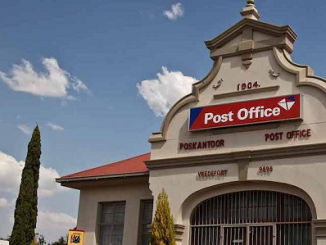

Founder: Turnaround Talk
With all of the criticism about South Africa and the bleak forecasts about our economic growth outlook, it’s hard to pick truth from fiction. What is the truth behind South Africa’s low economic growth, and how can it be addressed?
South African growth is significantly dependent on the performance of two State Owned Entities (SOEs), Eskom and Transnet. We are all very well aware of Eskom’s struggles to supply its sole product to the country, and Transnet’s inability to address its structural issues is starting to have a significant impact on companies.
Demand and constraints
The demand for South African coal is well documented. Unfortunately, Transnet is so constrained that it reporting that it will deliver only 40 million tons of coal to the Richards Bay coal Terminal (RBCT). This is 20 million tons short of its 2023 target.
The result of this is devastating for miners. In July, Turnaround Talk published an article where the National Union of Mineworkers said that it knew of at least three mining houses which were considering Section 189 negotiations, which is the first step towards a possible retrenchment drive. It has now come to light that Glencore and Seriti Power were the companies that NUM referred to and they have sighted logistical constraints as a reason for this decision. Another key reason is the lower coal prices recently falling in Europe.
The impact of job losses
An article by Eye Witness News (EWN) The United National Transport Union (Untu) has flagged its concerns about a growing number of retrenchments in the coal mining industry.
This follows reports that more than 35,000 jobs are on the line in the sector. Untu said possible job losses are especially worrying in provinces such as Mpumalanga, where the lion’s share of mining activity is.
The article adds that if Glencore and Seriti go ahead with retrenchments, Untu said this won’t bode well for the country’s already high unemployment rate of 32.6%.
Untu spokesperson Atenkosi Plaatjie said the impact of Transnet’s poor performance on the mining industry also has dire implications for the broader economy.

Image By: Glencore
She said the state-owned company is too big to fail.
“Organised labour is committed to being part of an inclusive stakeholder approach to find immediate and practical solutions that can be implemented to reverse the situation at Transnet.”
Despite the looming job losses in the two companies, the mining sector contributed positively to employment figures in the year’s second quarter.
More evidence
A recent article that News24 published described the dire situation in the following way: the majority of SOEs have all but collapsed, unable to fulfil their basic mandate. The fact that this is now impacting other companies and the livelihood of many South Africans is sad indeed.
And it doesn’t stop here. The Electricity Minister is well aware of the challenges facing Eskom and the potential impact that load shedding can have on companies but has not ensured that the passing of the Energy Bill is accelerated. If this Bill is not passed before the 2024 Presidential Elections, the process will have to start all over again, as the new administration will want to have a say in what the Bill looks like. It doesn’t look like the Bill will be passed this year, and with the campaigning that will take place in early 2024, it looks like this can will be kicked further down the road.
All of these actions are more than counterintuitive when it comes to economic growth; they are having a material impact on the sustainability of many companies. How can we ignore the fact that the South African Government is the root cause of financial distress?




